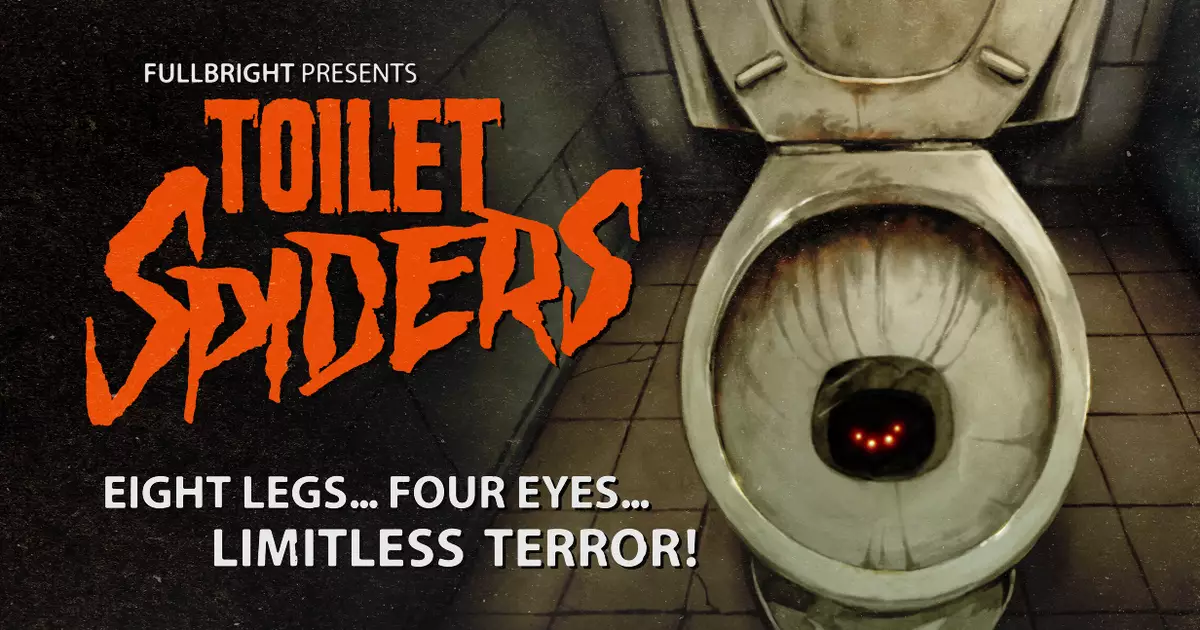The indie game development landscape is often marked by rapid evolution and surprising transformations, and few studios encapsulate this shift quite like Fullbright. Known for their narrative-driven experiences like *Gone Home* and *Tacoma*, Fullbright’s venture into the bizarre with their new title *Toilet Spiders* prompts us to explore not just the gameplay but the broader implications of their creative journey. This article will evaluate *Toilet Spiders*, wherein players navigate a troublesome landscape fraught with giant arachnids lurking in the unlikeliest of places—the bathroom.
*Gone Home* established Fullbright’s reputation as a pioneer of atmospheric storytelling, deftly blending the familiarly mundane with undertones of emotional exploration. As players traversed an eerily quiet home, they encountered a narrative steeped in personal memories and familial tensions. In stark contrast, *Toilet Spiders* shifts this atmosphere to a realm of lo-fi horror, introducing elements of survival that challenge players’ instincts rather than their emotional intelligence. The creators have turned their backs on emotive storytelling to experiment with sheer terror, unveiling the multifaceted potential of fear in gaming.
The premise of *Toilet Spiders*—navigating through a surreal, dystopian world while evading radioactive spiders hiding in toilets—serves as an unorthodox backdrop that can evoke both laughter and dread. There’s something inherently ridiculous and terrifying about this setup, merging the commonplace fear of spiders with the vulnerability of a bathroom visit. The comedic element lies in its absurdity, while the horror arises from the sudden apocalyptic imagery of a post-regime Exclusion Zone.
The narrative framework is only as compelling as its mechanics. In *Toilet Spiders*, players must navigate floors filled with danger while scavenging for essential items, such as old light bulbs and flash grenades. It emphasizes resource management, which has become a staple in survival horror games. Players are entangled in a web of strategic decision-making as they learn to weigh their options against the pervasive threats around them.
The game also raises questions about agency and vulnerability. The nameless protagonist, labeled merely as a “volunteer,” indulges players in a sense of helplessness—reflecting a shift from the empowerment found in prior Fullbright titles like *Tacoma*, where technology offered both safety and exploration. Here, survival depends on understanding not just the game mechanics but also on interpreting the grotesque humor juxtaposed against dire circumstances.
There’s a cynical humor present in the concept of giant toilet spiders, suggesting a commentary on paranoia and the absurdities of life. It mirrors our societal anxieties, playing on deep-seated phobias related to domestic spaces turned sinister. The joking undertones about bathroom fears do not merely exist for comic relief; they open the door for introspection about how fear can dominate our personal sanctuaries.
Further, the background story of the studio itself cannot be avoided. The tumult that enveloped Fullbright, particularly the controversies surrounding co-founder Steve Gaynor, adds a layer of complexity to *Toilet Spiders*. While the game stands on its own as a piece of entertainment, interpreting its themes through the lens of these developments reveals a concerning narrative of loss and transformation. There’s a question lingering in the air: is this work reflective of an individual grappling with the repercussions of their environment?
*Toilet Spiders* represents a bold pivot for Fullbright, stretching their creative boundaries while risking the loss of their established narrative-driven identity. By intertwining humor, horror, and the macabre absurdity of radioactive arachnids, they challenge players’ perceptions of fear within digital spaces. The transition from rich narratives to survival horror underscores a desire to explore new creative depths and themes that are both personal and social.
In essence, *Toilet Spiders* is more than a game about spiders lurking in toilets; it’s a reflection of the evolution of horror in the indie game scene and a microcosm of a studio in flux. All the while, the question remains—will players embrace this leap into the strange, or will they long for the emotional narratives that once defined Fullbright’s legacy? As the game unfolds, players will undoubtedly find themselves navigating not only the virtual but also the complexities of modern storytelling.


Leave a Reply